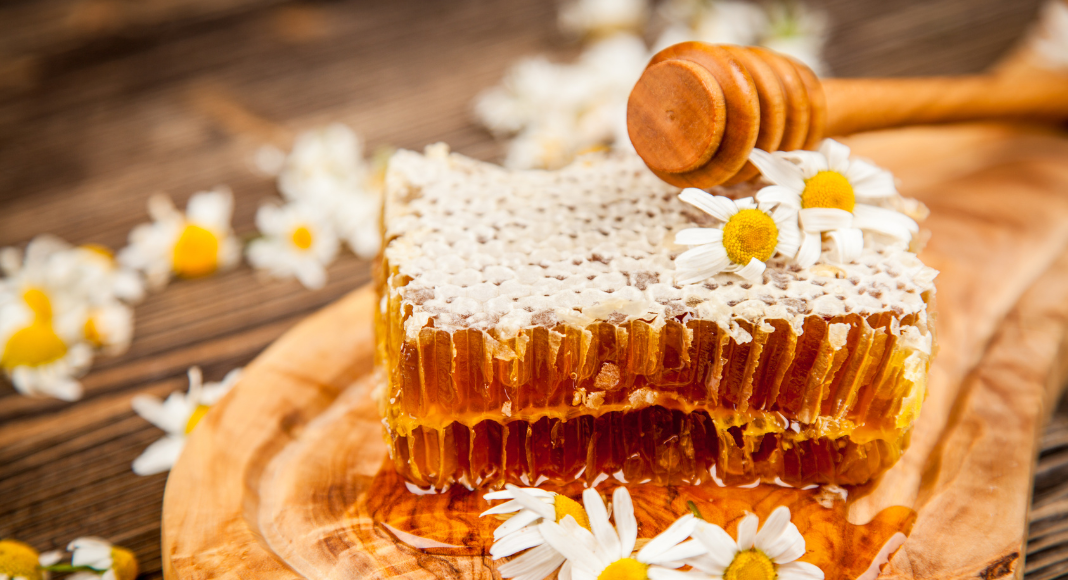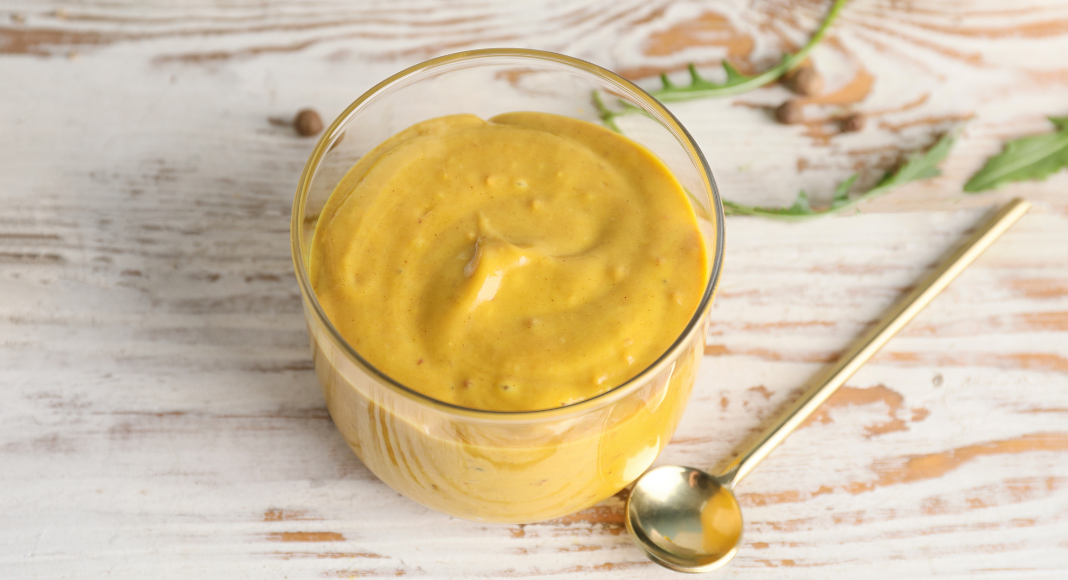September is National Honey Month! The sticky substance made by honeybees from flower nectar is not only a delicious treat we enjoy pouring on our biscuits, or a natural sweetener we put in our hot tea, but it is also a substance full of health benefits.
Honey is not a new fad or health trend. People have been using it for thousands of years. The ancient Egyptians used it for sweetening food, healing wounds, preserving food, and embalming their dead.
Health Benefits of Honey
*Disclaimer: Please consult your personal physician regarding the statements and research linked below.
Today, we are still learning about the health benefits of honey, but we already know that its raw form contains more nutrients and vitamins than white sugar. BestBees.com tells us that honey contains “vitamins and minerals like potassium, calcium, zinc, vitamin B, and vitamin C, as well as electrolytes, enzymes, amino acids, and flavonoids.” There has been a lot of research on this delectable treat and if you are not allergic to bee pollen, it may improve overall health.

Has your mother ever given you a spoonful of honey when you had a cough? With its antioxidants and antibacterial properties, it’s not surprising that this trick actually works! Honey is not recommended for children under the age of one, but it really can help reduce inflammation in the throat, or even on burns and other skin irritations.
According to the Mayo Clinic, there have been many positive physical and mental benefits of consuming honey. Modern research has shown that the antioxidants in honey can be beneficial for cardiovascular disease. It may benefit those with neurological diseases as a way of reducing anxiety and depression. In some studies, it has even benefited those with memory problems. Honey has also been shown to assist those with gastrointestinal issues. It supposedly helps your intestinal tract if it is overly active or as an oral hydration method.
It has also been suggested that local honey can aid those with seasonal allergies. There may not be enough scientific evidence for this, but many people swear that it helps them get through peak allergy season easier. Current studies have even shown honey to possibly aid in ridding the body of certain cancers. Needless to say, this sticky sweetness may have more health benefits than we currently understand today.
Choosing Your Variety
With over 300 varieties of honey, it may seem overwhelming to figure out which kind will be best in taste, and provide the most health benefits. According to Healthline, darker honey usually contains more antioxidants than the lighter varieties. Antioxidants help our bodies fight premature aging, heart disease, and type 2 diabetes. One tablespoon will not deliver your needed daily intake of antioxidants, but the proper amount can still be beneficial.
Manuka honey, made from the flowers of manuka trees, may have one of the higher levels of antibacterial activity, with tests done on bacterial pathogens and fungi.
Using Honey as an Alternative to Sugar
It may seem curious that even though honey is made of mostly sugar, it can benefit our bodies in so many ways. Honey will raise your blood sugar levels, but the antioxidants in it make it a healthier alternative to sugar. In fact, research shows that honey contains a hormone that helps regulate blood sugar levels and reduce inflammation.
Since it is still sugar, use it in moderation, especially if you have diabetes. The American Heart Association (AHA) recommends no more than 9 teaspoons, or 3 tablespoons, of sugar per day for men and no more than 6 teaspoons, or 2 tablespoons, of sugar per day for women. Some health organizations are more skeptical of the health benefits of honey due to its sugar content; it is important to remember that honey still has a “lower glycemic index than refined sugar.”
Storing This Treasure
When stored properly, this sweetener will never expire. That’s right, raw honey should never go bad. In the tombs of ancient Egypt, researchers found sealed honey pots that were still edible thousands of years later.
Honey can crystallize, and this makes many people think their supply has gone bad. But keep in mind that honey is 80% sugar and 20% water. Over time, excess sugars can crystallize naturally. The best way to store it is out of direct sunlight, in a closed container kept at room temperature. If your honey has crystallized, place it in a pot of warm water (not boiling) for a few minutes and let the sugars dissolve again.
Homemade Recipe
Why not make something at home this month using honey? My son loves honey mustard. From a dipping sauce for chicken tenders, or an amazing dressing on a salad, honey mustard is a staple in our house. The Farmer’s Almanac has provided a great, simple recipe:
- 1/2 cup ground mustard
- 1/3 cup white vinegar
- 1/4 cup honey, or to taste
- Pinch of salt
Combine the mustard, vinegar, honey, and salt into a saucepan and stir. Cook over medium heat for 3-5 minutes, until the mixture thickens slightly. Remove from the saucepan and cool to room temperature before serving. Store the remainder in a glass jar. (Makes about one cup.)
 We owe a lot to honeybees. They help pollinate over a third of the crops in America. So plant those native plants and perennials! Ask a local nursery for help with this task as they can recommend good pollinators for your yard.
We owe a lot to honeybees. They help pollinate over a third of the crops in America. So plant those native plants and perennials! Ask a local nursery for help with this task as they can recommend good pollinators for your yard.
If you do not have the time and resources to tend to your own bees, visit local farmers markets and stores to purchase local honey. Make sure the honey you are buying uses ethical bee-keeping practices and does not add more water or other ingredients. This sticky and delicious treat is more than a sweet additive — it may be the extra health benefit you never knew you needed.













